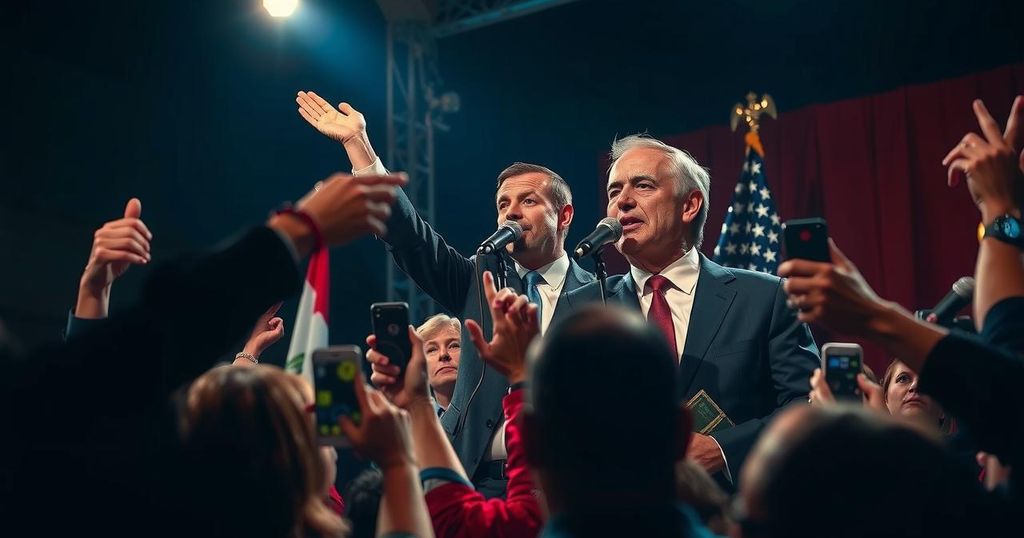Uruguay Prepares for Tight Presidential Runoff Election
Uruguay heads to a tight presidential runoff, with center-left candidate Yamandu Orsi challenging conservative Alvaro Delgado. Both candidates aim to attract undecided voters. The election occurs amid significant economic concerns, showcasing a unique political stability compared to regional neighbors. Polls predict a narrow outcome, with fewer than 25,000 votes potentially deciding the winner.
Voters in Uruguay are preparing to participate in a closely contested presidential runoff scheduled for Sunday. The election features opposition center-left candidate Yamandu Orsi, who advocates for a “modern left” approach, against the continuity conservative candidate Alvaro Delgado, who has gained support from the Colorado Party. With a population of just 3.4 million, the race is anticipated to be exceptionally tight, with polls indicating that the candidates could be separated by fewer than 25,000 votes. It marks the conclusion of a significant electoral year in the country.
In the first round, Mr. Orsi secured 43.9% of the vote as a representative of the Broad Front, while Mr. Delgado attained 26.8%. The latter candidate has been reinforced by support from the Colorado Party, enhancing his overall share to nearly 42%. Mr. Orsi’s strategy emphasizes continuity, assuring constituents that he does not intend to implement drastic policy changes. Conversely, Mr. Delgado positions his campaign as a plea for the re-election of an effective government, leveraging the popularity of outgoing President Lacalle Pou.
As voters head to the polls, both candidates aim to capture the attention of approximately 8% of voters who supported smaller parties in the first round, along with those who abstained from voting. Notably, neither candidate has introduced new proposals in recent weeks to specifically attract this demographic. Analysts suggest that despite economic challenges, a stable Uruguayan economy may weaken demands for substantial political changes. As the electoral landscape unfolds, many citizens remain undecided, reflecting uncertainty influenced by recent televised debates.
The presidential election in Uruguay occurs against a unique political backdrop compared to its regional counterparts in South America. Uruguay is generally recognized for its relatively stable political climate, characterized by moderate political discourse. The ongoing voting process occurs during a year noted for significant elections across various nations wherein incumbent parties have faced tough challenges. Current global trends suggest that economic strains, such as inflation and living costs, have been detrimental to incumbent parties, raising questions about whether Uruguay will follow suit or maintain voter confidence in existing leadership. This second-round runoff is critical for determining the future direction of Uruguayan governance, particularly as neither political block has garnered an absolute majority in the legislature. With both leading candidates focused on appealing to undecided voters, the final turnout and resultant political dynamics remain to be seen.
The upcoming presidential runoff in Uruguay represents a pivotal moment as two candidates, Yamandu Orsi and Alvaro Delgado, vie for leadership in an election characterized by significant voter engagement and differing political ideologies. As the nation approaches the polls, the outcomes will ultimately reflect the desires and preferences of a populace navigating through economic challenges and political dynamics. Observers will be attentive to whether Uruguay can maintain the political stability characteristic of its historical context or if it will mirror the global trend of incumbent party losses in the face of contemporary challenges.
Original Source: www.ndtv.com




Post Comment